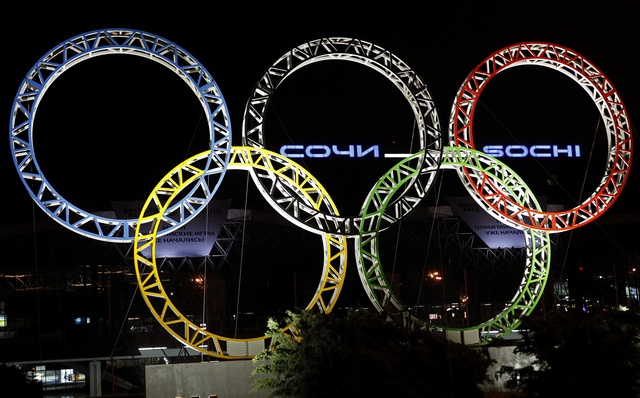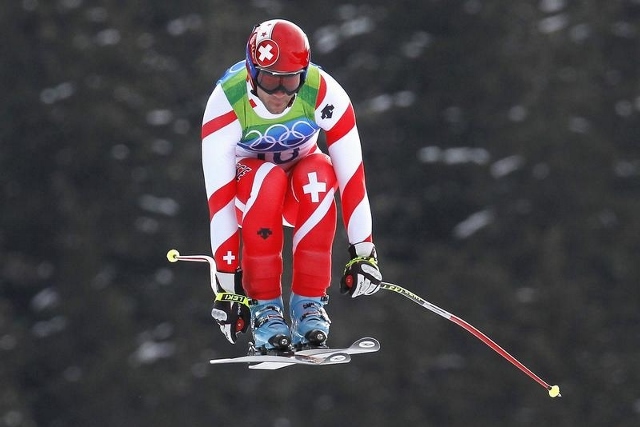Conor Walsh | Staff Writer
It’s been nearly thirty years since Russia last hosted an Olympic Games. The summer edition of the Games of 1980 was to be the showpiece for the pre-eminent Communist country in the world at the time, with the promise of an elite sporting occasion with which to boast the bountiful talent at their expense. Instead, the Games were mired in controversy from as early as January of that year when the Soviet army refused to withdraw troops from neighbouring Afghanistan, resulting in many Western countries boycotting the Olympics including the United States, West Germany and France. That Olympics brought us the rivalry of Ovett and Coe on the track, the flawless performances of Nadia Comaneci on the gymnastics beam and the USSR and East Germany teams combining to win more gold medals than the rest of the competition combined. Despite this, the Games were remembered not for the prowess shown in the sporting arena, but rather because of the political ramifications of a Cold War spat. Sport at the end of the day was made to feel like a loser, a casualty of a greater conflict of capitalism and communism stuck fast in the quick sand which had enveloped them since the Second World War.
Turning to the modern day and it is once again the colossal country in Eastern Europe which takes centre stage in the sporting context, this time for the winter edition of the world’s biggest multi-sport event. For the second time however, Russia is once again embroiled in a cloud of controversy and scandal, this time for a myriad of other reasons.
The decision last year of the Russian Duma to pass legislation banning of the distribution of ‘’propaganda of non-traditional sexual relations’’, known in popular culture as the anti-LGBT laws, have prompted a wave of criticism of the Putin administration both on a national and international level. World leaders, including Barack Obama, have refused to attend the Opening Ceremony on account of Russia’s ultra-conservative policy on the matter. The true extent of these archaic laws is seen in the fact that even a Pride House – a temporary location in the Olympic village celebrating LGBT athletes and their achievements – was outlawed by the Russian Justice Ministry on the grounds that it promoted ‘non-traditional’ relationships to minors. Such is the impact of these laws that even our own Students’ Union has banned the sale of Coca-Cola and P&G products in their shops for the duration of the Games, noting their role in sponsoring the Games. In Russia itself, protests are such a regular occurrence that the media exposure surrounding it is diminishing quickly.
It essentially has been one debacle after another for the organisers of these Olympic Games. Aside from the gross human rights abuses at the centre of the Games the organisers have come under scrutiny for their haphazard dealings of economic and environmental matters associated with construction. The Olympic Zero Waste Pledge was broken last year when it was discovered that lorries from Olympic event centres were offloading waste material into a huge landfill site in a water protection zone. Other environmental concerns include the construction of sites in the middle of the protected Caucasus Biosphere Reserve.
Sochi itself is unfortunate enough to also be located in one of the most politically unstable areas in the world. The threat of terrorism is a real one with the provinces of South Ossetia and Chechnya lying just to the east of the city and the region, being a melting pot of cultures and a hotbed of political activity since the fall of the Berlin Wall, is frequently immersed in conflict. Security for the Games is a major concern, particularly since the Volgograd bombings of December.
With all this activity in the background, it would be hard to imagine the major winter sporting event of 2014 taking place at all in Russia, let alone a summertime retreat for wealthy oligarchs. The fact remains, however, that on Friday the 7th February the very best that the world of winter sports has to offer will converge on this little known metropolis on the Black Sea shore. So far, none of the major countries have boycotted a contentious Games, though don’t expect the drama to end there. It is expected that protests of wearing Pride-themed attire and the painting of rainbow coloured nails will feature prominently among the Western nations opposed to Russia’s domestic policy; these actions are a breach of the Olympic Charter which prohibits any form of political protest. If these Games are to be remembered at all, it is hoped that the quality of the sport on show will overshadow the lingering controversy surrounding it.
At the end of the day, in this arena, sport should conquer all, bridging the chasms that divide opinion and providing a platform with which to settle scores of physical and mental combat. The first victory of these Games is the lack of a boycott, and with that one hopes that the athletes of the winter sporting world, regardless of race, creed, sexual orientation, or any discriminatory factor, that they can transcend the sequences of events that have unfolded since Sochi was awarded the Olympics and thrill us with their athletic endeavours. Hopefully, then, by the time these wonderful sports and sportspeople have concluded entertaining us on the last Sunday in February we can conclusively say that the 2014 Olympic Winter Games were memorable for the right reasons.








